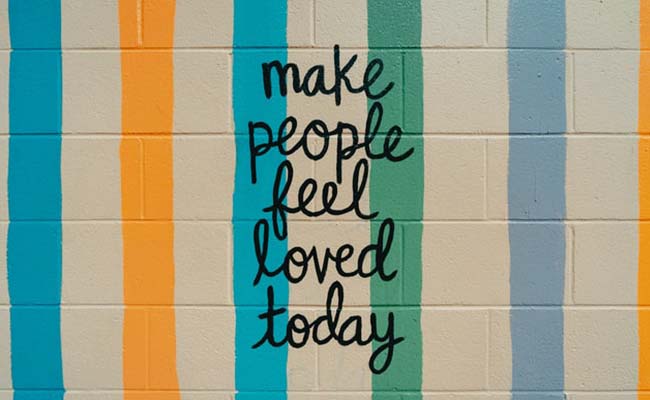My mobile phone is four years old.
It’s at that age where it gets funny looks from other phone users, and phones, for that matter. “Wow, you still got one of those”?
The thing is, my phone still does all I need it to do.
It’s a Blackberry, which means it has a Qwerty keyboard, something I find really efficient for sending email on the fly. I use very few apps. In fact, I have the BBC news app, and the Facebook app, which I mainly use when someone messages me through there instead of email. It also has a pretty decent camera.
Okay, so it’s sluggish when surfing the web, but I like the fact that this deters me from going online on my phone, because quite frankly I don’t want the temptation of checking things on my phone when I’m out and about – I spend enough time online as it is.
So why I am I telling you about the capabilities of my phone?
Well, the other day I looked down at the slightly scuffed paintwork and dated operating system, and thought, “maybe I should get a new one”.
And it got me to thinking about the desire for change.
While life is transient, and we should flow with the natural tide of change, forcing change unnecessarily through a desire to have something newer, to keep up with a trend or to please others can lead to further discontentment.
The fact is, I like my phone. It does everything I need it to do and works really well.
Moreover, I don’t like typing on touch screen devices, so why would I force myself to get a newer phone that would most likely make me miss my current one?
Of course, there will come a time for change. My phone will die sooner or later. And that will be the right time to embrace a new phone. And as always in life, around the same time, I’ll no doubt find a great new option that makes a considerable improvement on my previous choice.
But strangely, even though I’m content with the status quo of mobile interaction in my life, it seems it has become a social crime to be content with what you’ve got.
There’s a paradox to this too, in that when we buy a product, one of the key requirements is quality and durability. In other words, we want it to last a long time.
So then why are we so quick to upgrade (with next to zero benefit) as soon as a newer model comes out?
In this respect, phones are a great example of the way consumerism infiltrates and dictates the way we think and act.
For example, millions of people continuously upgrade their phones to gain functionality they don’t use. I have friends who always have the latest iPhone, but by their own admission don’t use two thirds of the functionality, and reality could have stuck with the last model for at least another year or two.
The focus is on having the latest technology, but not necessarily because our lives will benefit from the functionality. We don’t want to be excluded from the gang. We fear that we are missing out.
It reminds me of my teenage tantrums…
…But everyone else has one, mum!
I am no different.
I love technology. I like new stuff too.
It’s exciting.
It’s a new toy.
It’s the next best thing after the last next best thing that was once the next best thing…
…But unless the change considerably improves or makes more efficient a particular aspect of your life, there’s no real reward other than having something new, which wears off pretty quick.
Of course, what I’m getting at here runs a lot deeper than mobile phones.
I mean, how often have you found yourself saying, “We could use a bigger place”, or, “I’d like a new car”.
We are constantly seeking to make improvements in our lives, because we believe that such improvements will make life happier and more rewarding.
Even if what we currently have is great as it is, we believe that a better life is one more upgrade away.
But the grass isn’t always greener on the other side.
The reality is that a bigger house means more cleaning and higher utility bills, and a new car can bring just as many mechanical problems with it as the reliable one that has served you so well for the last four years.
Sometimes it’s a case of better the devil you know. But then the devil you know isn’t really a devil. It’s just a reliable constant, which over time becomes perceived as boring.
People even do this with partners, hopping from relationship to relationship, believing that there’s someone out there that little better suited to their requirements – only to reach a crossroads, alone, realizing that they’ve never known what they really want because they’ve never spent any time with themselves.
Change is good in many ways, particularly when the change makes life more efficient and less stressful.
If you have three children and you live in a two bedroom house, then no doubt things get cramped at times and a third bedroom will reduce the bickering between your kids and create a more relaxing, spacious home.
If your car keeps conking out and making you late for work, then a new one will reduce the stress of worrying about breaking down, and ensure you don’t get fired.
But there’s a distinct difference between what is needed and what is desired.
Often the desire jades our judgment of just how effective the change will be. We then force it, and end up with more stress, less efficiency and an unreliable life compass that leads us on a merry dance of external grasping; “I must have one of those”. “Oh man! Have you seen the new [insert item here]”. I can’t wait until the [insert item here comes out].
When you get caught in this cycle of desire for constant upgrading; be it new clothes, even when you have zero wardrobe space left, a new phone, just because the latest model looks that bit slicker than yours, a new boyfriend, just because though things have been a little boring lately…You need to turn the search inwards.
There’s no true happiness to be found in the desire to constantly upgrade your life with the next best thing.
After the initial child-like adrenaline rush of fulfilling the desire, you’ll find emptiness, again.
In fact, the hole will just keep getting bigger. Your desire for something bigger and better will grow, regardless of the fact that you just don’t need it.
If you find yourself in this cycle, stop and ask yourself what’s driving this desire. What permanent substance could you better fill this hole with instead?
Love?
Kindness?
Spirituality?
It’s no secret that so many celebrities spiral deeper into depression with the more fame and wealth they acquire. Yet we seem more concerned with acquiring the latest “things” they have rather than pitying their emptiness and learning from the vacuous trappings of celebrity culture and materialism in general.
More often than not, less is more. When you unshackle yourself from the persistent desire for unnecessary change driven by the keeping up with the Jones’ syndrome, you feel a sense of liberation – a sense of taking control of your life and your individuality.
There’s nothing wrong with wanting the best for your life, and there’s nothing wrong with setting high standards for yourself.
But too often we find ourselves in a mindless spin of desire, being pulled all over the place by vacant aspirations that won’t result in more positive, fulfilling existence.
Sometimes we’re fine as we are.
Sometimes what we have is enough.
Sometimes more isn’t what we need.
Sometimes we just need to stop and take stock of where the monkey mind is leading us. Turn the search inwards for a moment; let go of the grasping and allow yourself to see the wood for the trees.
This momentary meditation is empowering, because it helps sort the need from the desire, the practical from the complicating. And more often than not you realize that what you need is already in your ownership.
Happiness does not depend on what you have or who you are. It solely relies on what you think. ~ Buddha.





Leave a Reply